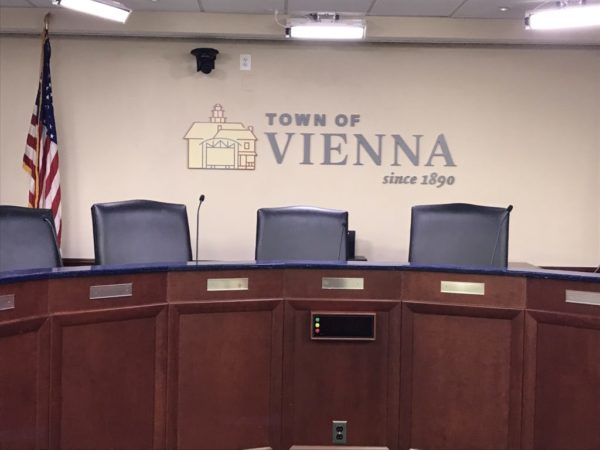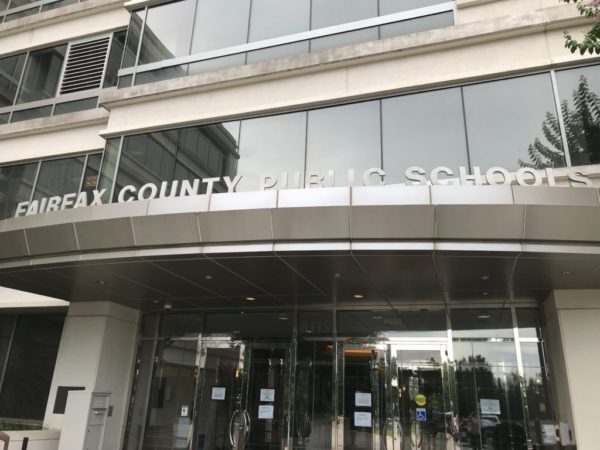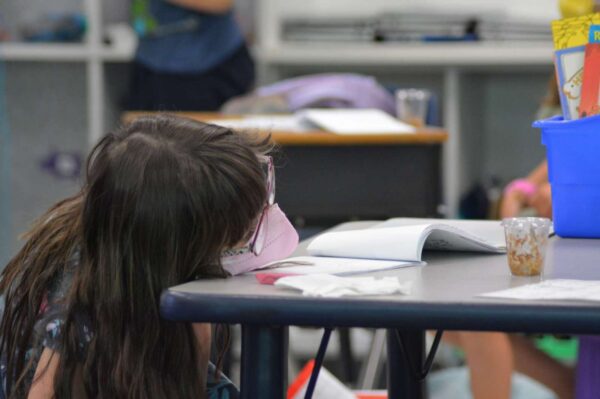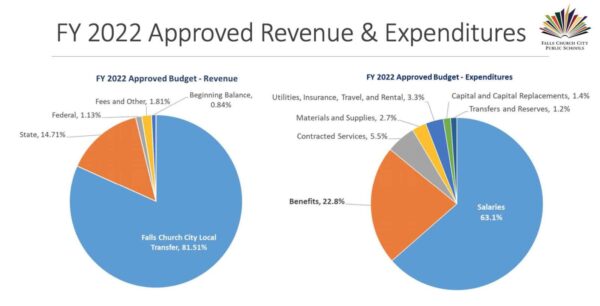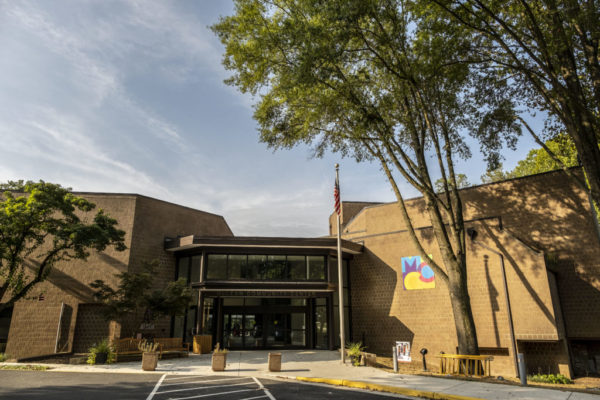
The McLean Community Center Governing Board will hold a public hearing tonight (Wednesday) on its proposed budget for fiscal year 2023. The board meeting will begin at 6:30 p.m. at MCC’s 1234 Ingleside Avenue facility.
While COVID-19 has been a source of difficulty, the proposed $6.3 million FY 2023 budget is based on “assuming operations will be under normal conditions for the full year,” according to proposed budget draft.
Program revenue for FY 2021 was $929,000 lower than the adopted budget, though MCC also saved roughly $1 million in operating expenses.
The community center continues to be challenged by the effects of the pandemic in the current fiscal year 2022. Program and event registration has increased, with alternate and virtual programs still being made available, but safety precautions still require lower occupancy limits.
For FY 2023, the proposed revenue projections are as follows:
- Real estate tax: $5.2 million
- Interest on investments: $20,000
- Rec class fees — instructional programs: $467,300
- Special events: $53,400
- Performing arts — theatre: $114,550
- Youth program fees: $138,910
- Old Firehouse Teen Center: $212,500
- Visual arts activity fees: $0
- Miscellaneous (facility rentals, ad revenue, etc.): $89,325
The proposed budget would cover 389 recreational classes, 169 performing arts events, seven youth events, and 14 special events, including a Fourth of July celebration, McLean Day, and the annual McLean 5K.
MCC’s summer camps are also expected to generate $126,000 at full capacity.
Operating expenses addressed by the budget include the annual operation of the center and regular costs of facility maintenance, utilities, instructor fees, theatre productions, and operating costs for events. The personnel expenses include salaries, as well as taxes and benefits.
Preliminary projections for expenses include the following:
- Administrative service: $974,115
- Facilities services: $864,365
- Public information: $508,947
- Recreational class — instructional programs: $771,737
- Special events: $633,746
- Performing arts — theatre: $1,539,733
- Youth program: $353,555
- Teen center: $696,629
- Visual arts activity: $25,000
Capital improvement projects on the docket for FY23 include electric vehicle charging stations, shade and sails, a community mural, and $750,000 to renovate the community center’s roof.
The governing board is scheduled to approve an FY23 budget when it meets on Oct. 27.
Lieutenant Governor Candidates Speak at Tysons Luncheon — “Candidates for lieutenant governor of Virginia told their personal stories and articulated their values at a Sept. 1 luncheon in Tysons, but provided few specifics on what they would seek to accomplish if elected.” [Sun Gazette/Inside NoVA]
MCC to Hold Public Meeting on Budget Tonight — “The McLean Community Center (MCC) Governing Board will hold two, in-person budget meetings this month in order to gather input and suggestions from the residents of Dranesville Small District 1-A on the Center’s fiscal year 2023 budget. The first meeting, the Finance Committee Meeting of the Whole, will be held at 6:30 p.m. on Wednesday, Sept. 8.” [Falls Church News-Press]
Tysons Startup Raises Millions in Funding — The Tysons-based startup theCut, a mobile platform that enables users to book and pay for barbershop appointments, announced last week that it has raised $4.5 million in seed money, bringing its total funding to $5.35 million to date. Company leaders say they will use the funds to build out a team that currently consists of 20 employees, including interns. [DC Inno]
Vienna elected officials will discuss how to use the town’s federal COVID-19 relief funds at a meeting next month, though the town council is leaning away from using the money to give essential workers extra pay, Director of Finance Marion Serfass said on Monday (Aug. 30).
The Town of Vienna formally received $8.5 million on July 12 — half of its $17.1 million allotment from the American Relief Plan Act, which is providing the money to help local and state governments respond to the pandemic.
“Any funds that are not expended or that will not be expended on necessary expenditures incurred by December 31, 2024, by the locality…must be returned to the federal government,” Virginia Secretary of Finance Joe Flores noted in a June 9 letter to recipients.
At a public hearing on Monday (Aug. 30), Serfass detailed the limits on how the town can use the money, noting that it can’t independently offer certain services that are provided by the county, such as schools and libraries.
The U.S. Treasury permits localities to spend ARPA funds on four categories, as summarized by the town:
- Category A: Response to the public health emergency and negative impacts of the pandemic, including capital improvements to adapt buildings and maintenance of park space for deferred upkeep and extra use during quarantine periods
- Category B: Premium pay to essential workers and grants to employers of essential workers; the only eligible workers in the town would be sanitation and public safety
- Category C: Provide government services related to revenue reduction from the pandemic
- Category D: Necessary capital investments in water, sewer, or broadband infrastructure, which has been interpreted to involve stormwater
Serfass said that the town so far has informally elected not to allocate funds to category B but added that the issue could be discussed further.
According to Serfass, the government services category has been interpreted to mean any services that the town provides, which could include cybersecurity improvements, for example. She also said a preliminary calculation suggests the town won’t be allowed to spend more than $2.6 million in this area based on federal restrictions.
The public hearing on Monday drew only one speaker, Bob McCahill, who represented the civic group North East Vienna Citizens Association.
McCahill said his group recommends that the town devote money for water and sewer infrastructure to free up capital money for purchases of equipment that could be used to collect and remove leaves in the fall.
“The idea is that the purchased capital equipment would be much more efficient than the current method,” he said.
The NEVCA has advocated for changes to a town-owned property along Beulah Road that is currently used to store leaves and process them into mulch. The group says those operations disturb residents, and the space should be restored back to a park.
McCahill also said the association wants the town to use the federal money to mitigate parking issues.
The town council will deliberate on how to spend the money in a conference session scheduled for 7:30 p.m. on Sept. 20 at Vienna Town Hall.
The public hearing is closed, and there won’t be public comment at the September meeting, but residents are always encouraged to share their thoughts with the mayor and council, town spokesperson Karen Thayer said in an email yesterday (Tuesday).
Residents can email Town Clerk Melanie Clark at [email protected], call her at 703-255-6304, drop off correspondence at the town hall, or contact elected officials directly.
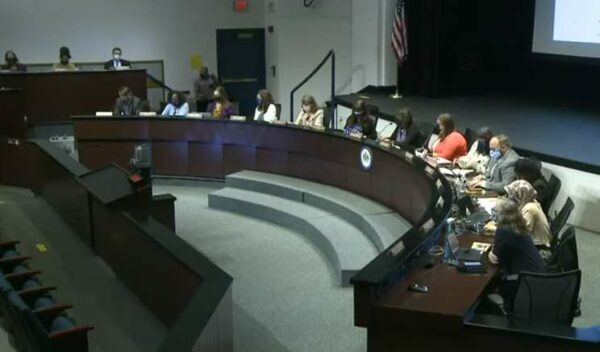
Fairfax County Public Schools will provide additional compensation for select staff members, particularly bus drivers and special education teachers, and bolster its mental health services, thanks to a new round of federal COVID-19 relief.
The ESSER III (Elementary and Secondary School Emergency Relief) spending plan approved by the Fairfax County School Board on Thursday (Aug. 26) devotes $188.6 million to various expenses tied to keeping schools open and safe during the ongoing pandemic.
The funds will last for three years and came from the American Rescue Plan Act that Congress passed in March.
“We believe our ESSER 3 plan addresses key areas to support schools as they return to in-person instruction from the pandemic as well as increase our focus on serving students and staff in our school division with an equity lens,” Superintendent Scott Brabrand said in a statement for the board’s meeting last week.
The school board approved the measure almost unanimously. Braddock District Representative Megan McLaughlin abstained, restating concerns that the spending plan doesn’t contain the level of detail she wanted to ensure adequate oversight.
The multi-year funding covers:
- Nearly $55 million for academic intervention
- $46 million to pay special education teachers more for increased workloads connected with the pandemic and individualized education plans
- $23 million for social and emotional learning needs of students
- Nearly $14 million for after-school programming and transportation
- $10 million for cafeteria, classroom, and outdoor monitors
- $9 million for cybersecurity
- $3 million to increase bus drivers’ starting pay from $19.58 per hour to $22.91
The academic and social and emotional learning categories encompass everything from tutoring support for before and after school programs to mental health materials, technical education, and transportation to school programs on Saturdays.
“Each school will receive funding allocations as well as stipends for academics and wellness,” FCPS said in a news release on Friday (Aug. 27). “The academic and wellness allocations are to be used to directly support students. The amount each school receives is based on its project enrollment and need.”
For academic and wellness-related items, which make up 82% of the allocations, elementary schools are expected to receive about $50,000 to $189,000, middle schools will get $69,000 to $298,000, and high schools can count on around $105,000 to $368,000.
Schools will get similar amounts to address social and emotional learning needs, resulting in about $37 per student.
The plan was designed to give schools flexibility in how they spend their money, while also establishing checks and balances for approving and overseeing the money, according to FCPS.
“All schools will create a plan that outlines how they will use their ESSER III funding to support students’ academics and wellness, and they will post information about their plan on the school website,” FCPS said.
The plan also calls on FCPS to fast track the addition of 10 positions for its English Language Learner programs, which already include 887 positions, 98% of which are teachers, Brabrand noted.
According to the state, $124 million was available as of April 30 for Fairfax County, and the remaining third will become available after FCPS submits a plan to the state due on Wednesday (Sept. 1).
The Commonwealth required school districts to post their plans for using the money within 90 days of receiving the funds. Districts were also required to gather public input, which FCPS did with a hearing on June 7.
The ESSER plan is separate from the year-end budget review that the school board approved during the same meeting on Thursday, which included one-time bonuses for FCPS staff.
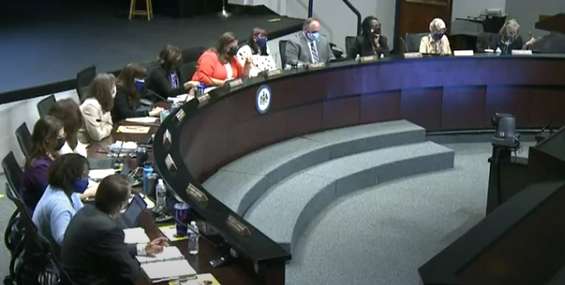
The Fairfax County School Board approved bonuses for all public school employees yesterday (Thursday) in a gesture intended thank them for their work during the pandemic.
According to Fairfax County Public Schools, the district had $82.1 million available in its year-end budget review. The school board voted 10-1 to approve the measure with Braddock District Representative Megan McLaughlin opposing and Member-at-Large Abrar Omeish abstaining.
The bonuses will be paid in November and consist of $500 for temporary workers and $1,000 for both full-time and hourly contracted employees.
“$1,000 doesn’t touch the surface. I understand that. I think we all do here,” Springfield District Representative Laura Jane Cohen said at the board meeting.
During a work session on Tuesday (Aug. 24), the board considered giving the same amount to everyone, including some 2,500 substitute teachers, but FCPS staff noted that a person who only worked one day would then be eligible for the higher amount.
The total cost of the one-time bonuses is $32.7 million. The board also approved other revenue adjustments, including $12.2 million for textbooks and nearly $6.6 million in major maintenance projects.
While multiple school board members described the bonuses as “modest,” the Fairfax County Federation of Teachers, a union that represents educators and other non-administrative staff, expressed appreciation for the gesture.
This is appreciated and we can’t wait to see what’s possible with collective bargaining. Dignity and respect for all FCPS employees is what’s needed to keep our ranking as a top school district. #PublicSchoolProud #1u #unionproud
— Fairfax County Federation of Teachers (@FCFTcares) August 27, 2021
McLaughlin said before the vote that she supported the bonuses for staff, but she voted against the motion because of one line item involving Food and Nutrition Services computer equipment and software services.
McLaughlin cited concerns over FCPS spending $1.8 million on Food and Nutrition Services, saying it’s meant to be a self-sustaining grant fund that had previously been allocated $10 million.
Omeish said she would abstain from the vote to urge FCPS to adjust how it considers spending money at the end of each budget year.
“What’s left at year-end is not a trivial amount,” she said. “I’m hopeful that in this coming cycle, we can…have a process that is more thorough at the end of the year, one that involves community input or at least more justification around the monies allocated to prevent the rubber-stamping problem.”
Omeish also said that the FCPS equity team should lead from the beginning to address disproportionate needs and properly prioritize such spending.
The board also passed a $188.6 million plan for spending federal COVID-19 stimulus money from its ESSER III (Elementary and Secondary School Emergency Relief) fund. McLaughlin abstained.
The multi-year plan includes funds to pay special education teachers more for increased workloads, to support students’ social and emotional learning needs, for cybersecurity, to increase bus drivers’ starting pay, and to hire cafeteria, classroom, and outdoor monitors, among other expenses.
Fairfax County Public Schools is considering providing $1,000 bonuses to its employees, along with a base pay increase for bus drivers.
FCPS administrators and the school board discussed the potential compensation boosts during a work session yesterday (Tuesday), when they also debated how to spend and oversee $189 million in federal COVID-19 relief money.
As part of its fiscal year 2021 budget review, the district could use $32.7 million for one-time bonuses to employees, which is unrelated to the relief money. A retention strategy similar to bonuses given to county government workers, the bonuses would be $1,000 for contracted employees and $500 for 3,352 hourly workers.
A vote on the budget review is scheduled for the school board’s meeting tomorrow (Thursday). If approved, the bonuses would be paid in November, according to FCPS staff.
Springfield District School Board Representative Laura Jane Cohen raised concerns about the proposed gap between what full-time and temporary staff would receive.
“I would argue that there is no way in the world we could have gotten through last year and now even more with folks being quarantined [without substitute teachers],” Springfield District representative Laura Jane Cohen said.
The discrepancy led the school board to consider whether temporary staff could also get $1,000. Those workers include some 2,500 substitute teachers as well as other workers, such as coaches and dining room assistants, but someone who worked one day would also be eligible, according to Sean McDonald, interim assistant superintendent with the Department of Human Resources.
During their work session, the school board also discussed plans for the ESSER III money (Elementary and Secondary School Emergency Relief) that FCPS got from the $1.9 trillion stimulus that Congress passed as part of the American Rescue Plan Act this spring.
The ESSER III fund is intended to help FCPS respond to pandemic-related issues and will run from this current school year through June 2024. The proposed spending plan covers increased workloads for Individualized Education Program (IEP) staff, addresses students’ social and emotional needs, and supports other school operations.
FCPS staff also pitched allocating nearly $3.3 million to increase bus drivers’ pay, citing a need to stay competitive with surrounding school districts.
“I believe our labor market is fundamentally restructuring before our eyes right now,” Superintendent Scott Brabrand said.
He said the ESSER III money could raise the minimum pay of the district’s 325 bus drivers to “step six,” or around $23 or $24 per hour. Faced with a shortage of drivers, FCPS is currently offering a starting salary of $19.58 an hour to new drivers, along with a $2,000 signing bonus.
Braddock District representative Megan McLaughlin expressed disappointment with the ESSER III spending plan, saying she wanted more information on how staff came up with the dollar amounts for each line item.
“I’m sitting here in shock,” McLaughlin said. “…There’s no way I’m voting for this on Thursday, and here’s why. At some point, this board has got to demonstrate where we stand on our fiduciary responsibility.”
FCPS has proposed spending the money based on four categories:
- Address learning deficits
- Provide for students’ academic, social, emotional, and mental health needs
- COVID-19 prevention and mitigation strategies
- Other uses, such as technology, communication, translators, interpreters, project management, and transportation
Those will help give individual schools flexibility in how to spend their money with FCPS providing oversight.
“The flexibility is there so a school with those needs can shift the funds and resources as approved by the region to take care of those specific needs,” said Mark Greenfeld, assistant superintendent of the Department of School Improvements and Supports.
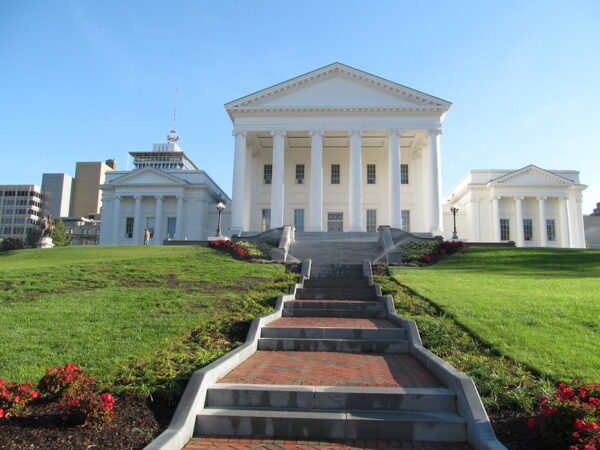
The Virginia General Assembly has wrapped up its first fully in-person session since the onset of the COVID-19 pandemic.
Convened on Aug. 2, the special session concluded on Tuesday (Aug. 10) after the House of Delegates and state Senate appointed eight new judges to the Virginia Court of Appeals and passed a plan to spend $3.5 billion in federal coronavirus relief funds.
The eight-day session marked the first time in 17 months that the State Capitol in Richmond hosted the entire legislature. While the Senate continued meeting in person throughout the pandemic, the House conducted most of its business remotely, with the exception of a one-day veto session in April 2020 and the initial days of a special session in August 2020.
“It was just really nice to see people again getting together,” Del. Mark Keam (D-35th) said by phone while driving back from Richmond on Tuesday.
The special session still required some adjustments in response to the continued threat of the coronavirus.
Plexiglas shields were erected around each legislator’s desk in both chambers, and Keam says all of the Democrats at least were fully vaccinated with masks donned throughout the session, though there was less consensus about the etiquette for greeting people.
“Some people shook hands. Some people just bumped their elbows,” Keam said. “…I can’t speak to what the Republicans are doing, but for the Democrats, we went out of our way to not only practice safe protocols, but also to show to the public that, you know, you’ve got to take this seriously still.”
For Keam, whose district includes Vienna and part of Tysons, highlights of the adopted American Rescue Plan Act budget bill include the $700 million to expand broadband with the goal of achieving universal access by 2024.
That kind of major investment would’ve taken much longer to put together without the federal funds, which were approved by Congress in March, Keam says, noting that while the need for broadband is most acute in Virginia’s rural areas, Fairfax County also has gaps in coverage.
“As a one-time expense, we’re finally able to catch up on the broadband infrastructure that we need,” he said.
As chair of House’s higher education subcommittee, Keam cited subsidizing financial aid for college students as another top priority. The General Assembly allocated $111 million to that, along with $250 million to upgrade ventilation systems in K-12 public schools.
Other ARPA funds were allocated to small business recovery, unemployment benefits, water and sewer infrastructure, and bonuses for some law enforcement officers. The bill also requires that the Department of Motor Vehicles resume walk-in services.
Keam and the rest of the recently formed Asian American and Pacific Islander Caucus had hoped to see more money devoted to making government services — particularly the Virginia Employment Commission, which will receive more than $800 million — more accessible for people who are not fluent in English.
The budget includes $500,000 to help state agencies expand language access, according to a news release from the AAPI Caucus.
“Things like language [assistance] and other things that take more time to develop and hire more people, they didn’t think that we could use the money right away for that,” Keam said. “But that’s something that they want to work with us into the next year.” Read More
Fairfax County will hold more summer classes for students with disabilities later this month after staffing issues put the program in jeopardy.
After families were informed that a teacher deficit was delaying the Extended School Year program, the school district adjusted it into two blocks, the first of which is already underway, to allow it to keep class sizes low but do more with less staff.
“We’re in a special education crisis,” Fairfax County Public Schools Superintendent Scott Brabrand said Tuesday (July 13) during a work session with the school board.
He noted around half of the 400 job openings that the district currently has involve special education, but according to the school district, a second Extended School Year block is “almost fully staffed.”
“There is a full commitment that we will have a fully staffed second session of the ESY,” Mount Vernon District School Board Representative Karen Corbett-Sanders said, adding that FCPS notified families and provided a timeline for transportation, food services, and more.
Earlier this month, FCPS apologized for communications that suggested the “administration was faulting teachers for failures of the system to supply optimum programming.”
“Our staff members have gone far beyond ordinary expectations and we are grateful for their professional dedication,” the district said on social media.
While officials praised teachers and administrators for making services work this summer, FCPS is looking to build within its own ranks to help address long-term faculty shortages.
School officials are working to apply for COVID-19 relief from an ESSER III fund (Elementary and Secondary School Emergency Relief). The money comes from the $1.9 trillion stimulus in the American Rescue Plan Act, passed by Congress and signed into law in March.
Previous federal COVID-19 relief plans included ESSER funds administered by state education departments, though local school districts had to apply to obtain the funds.
The school board was slated to vote on a plan for how to spend the roughly $189 million that FCPS is seeking when it meets tomorrow (Thursday).
The money would cover a three-year span, starting with the upcoming school year through June 2024. Intended to help schools safely open after a challenging year due to the pandemic, the funds can be used to support school operations and address students’ social and emotional needs.
The proposed plan would allocate $46.2 million to special education staff, which amounts to a 7% salary increase to cover the extra 30 minutes needed each day to file Individualized Education Program paperwork due to the pandemic, according to FCPS.
The funding sought would also involve around $2.5 million for professional development. According to Tuesday’s presentation to the school board, that effort would involve two new employees each year. It isn’t immediately clear if that’s all for salaries or if other expenses are involved.
Other requests include $54 million for academic interventions, $2 million for cybersecurity, $15.9 million for after school programming and transportation at high schools, and $20.1 million for a summer 2022 learning program.
Board members pressed FCPS officials for more accountability and strategic planning in its plans for the federal funds. Community members previously weighed in through focus groups in May and June, online feedback, and a June 7 public hearing.
Wilda Smith Ferguson, a parent of a child with special needs in the district, said during the June meeting that the school system’s decisions regarding protocols haven’t taken children like hers into consideration.
“She is totally dependent on her teachers and the support staff at the high school that she attends,” Ferguson said. “I would like to see some of the money in the grant go to, basically, instead of ‘trickle down,’ trickle up. Figure out what is best for the most vulnerable and work up.”
The deadline for FCPS to apply for ESSER funds is Sept. 1.
The Vienna Town Council adopted a new budget for the 2021-2022 fiscal year last night (Monday) that decreases the town’s real estate tax rate for the first time in eight years.
At $43.2 million, the new budget increases funding by 5.4% over the adopted FY 2020-2021 budget, including a 6.9% increase in the General Fund to $26.5 million, but revenues remain 3.1% below the budget that had been proposed for FY 2020-2021 before the COVID-19 pandemic forced the town to revise its plans.
In a press release, the town says the funding increase in the budget for the next fiscal year “reflects a return to more normal post-pandemic operations” as Virginia rolls back public health restrictions amid an ongoing vaccination campaign.
“Last year at this time it was difficult to determine if we had budgeted sufficiently to meet the economic challenges of the pandemic,” Vienna Town Manager Mercury Payton said. “We were pleasantly surprised at how well Vienna survived the initial challenges and how well we are positioned to handle improving conditions.”
In particular, the Town of Vienna anticipates increases in revenue from real estate taxes and parks and recreation fees.
The new real estate tax rate of 22.25 cents per $100 of assessed value represents a quarter-cent drop from the current rate of 22.5 cents — the town’s first rate decrease since 2013 — but residents will still see a $72 increase in their tax bill, on average, due to rising property values.
Residents should also brace for higher water and sewer bills after the town council approved raising the rates by 4.3% to support a 6.1% increase in the water and sewer fund budget, which will be $10.8 million for the upcoming fiscal year.
According to the town, the increase in rates is necessary “to offset increasing costs of sewer treatment and to fund necessary infrastructure replacement.” The average resident’s water and sewer bill will go up by about $11.75 per quarter, amounting to a $47 annual increase.
While the budget was passed unanimously, Councilmember Ray Brill suggested the town should look for ways to reduce the water and sewer rates in the future as much as possible while still addressing the need to repair and refurbish infrastructure.
Federal relief from the American Rescue Plan Act could potentially assist with that goal, but the town is still awaiting guidance for how those funds can be used, Vienna Director of Finance Marion Serfass says.
“We’ll be looking for those opportunities,” she told the council.
The Town of Vienna will receive an estimated $14.9 million from the stimulus package, including approximately $46,900 that has been budgeted for the costs of software to support virtual meetings, but the remaining funds are not expected to arrive until fiscal year 2022, which starts on July 1.
The town says lans for utilizing the funds will be shared in a public hearing when the exact amount and distribution date are determined, and it will require an appropriation and budget amendment by the town council.
As part of the budget adoption, the town council voted to keep $97,000 in reserve for the Parks and Recreation Department with the expectation that the money will become available once COVID-19 restrictions lift and the department can ramp up its operations.
The council also moved to unfreeze $434,300 in funds that had been in reserve for the current fiscal year, including $359,300 for worker compensation increases and $75,000 to cover education and travel expenses for required recertification training for town police officers.
Thanks to efforts to conserve costs by having existing staff cover vacant positions and unexpected budget surpluses in business license and state revenues, the Town of Vienna is projecting a $294,000 surplus for FY 2020-21 of $294,000.
About $125,000 of those surplus funds will go to giving eligible employees a 3% salary increase retroactive to April 1 of this year.
“I’m glad we’re doing that. I think our employees need a raise,” Vienna Mayor Linda Colbert said. “I think they’ve been patient and understanding, but they’ve worked hard this year, so I’d like to see that happen.”
The Falls Church City Public Schools School Board unanimously approved a $53.6 million operating budget for the 2022 fiscal year on Tuesday (May 11).
The budget, which includes $43.8 million in revenue from the City of Falls Church, is balanced, provides wage increases for staff, and meets budget guidance from the city, according to school staff.
“The budget is, in my estimation, a celebration,” FCCPS Superintendent Peter Noonan said during the school board meeting.
At this time last year, FCCPS and the school board were “cutting hundreds of thousands of dollars” from the budget and unable to increase staff compensation, Noonan noted.
“As we moved through the budget this year, we’ve been able to accomplish some things that were a long time in coming, and it does represent a turning point in the COVID-19 crisis that we’ve been in,” the superintendent said.
For the third year in a row, the budget meets a directive from Falls Church City to limit any increase in city transfer funds to no more than 2.5% over the current budget and to avoid increasing the real estate tax rate, according to the school division.
Overall, the budget marks a 3% increase from the current budget with support from a $470,000 increase in state funding, thanks to “a substantial jump in sales tax revenue,” FCCPS says.
Federal revenue, primarily for special education, will increase by $32,000.
The budget includes a “well-deserved” step increase for eligible employees, averaging 2.5%, as well as a 1.5% cost of living adjustment for all staff, Noonan said. The budget also accounts for a projected 2.4% increase in health insurance costs.
“We are able to take care of staff and faculty,” he said. “This not only helps our employees but it helps us grow salary scales, which will ultimately impact our ability to continue recruiting staff. We remain competitive in the region, and we have great benefits as well.”
The current fiscal year 2021 budget eliminated salary increases for staff due to the economic downturn caused by the pandemic.
With the new budget, FCCPS will hire a school counselor to lower the ratio of students to counselors in response to new state legislation. New positions have also been added for an additional social worker, an English-Language Arts coordinator, and three more custodial staffers for the newly opened high school, which was recently renamed Meridian High School.
School Board Chair Shannon Litton lauded FCCPS for the completion of the high school campus project.
“We know that that was an incredible feat that it is completed on time and on budget,” Litton said. “I think in the midst of this year it’s gotten overlooked, but it was honestly an incredible thing you’ve accomplished.”
Meanwhile, FCCPS projects enrollment to go up by 101 students from Sept. 30, 2020, bringing the total population up to 2,605 students.
“FY 2021 enrollment was lower than we projected,” a staff presentation said. “However, we are already seeing enrollment recovery and are expecting to have a further increase in enrollment next year.”
The budget also includes funding to continue replacing school-issued electronic devices every four years at the middle and high school levels.
Budget reductions include:
- Base pay for current employees was adjusted to reflect turnover this year and projected turnover next year, resulting in savings of ~$475,000
- Discontinued retirement program benefits saved the division nearly $93,000
- FCCPS saved $100,000 by adjusting its contracts with neighboring jurisdictions for some instructional services to better reflect how much those services are used
Photos via Falls Church City Public Schools



